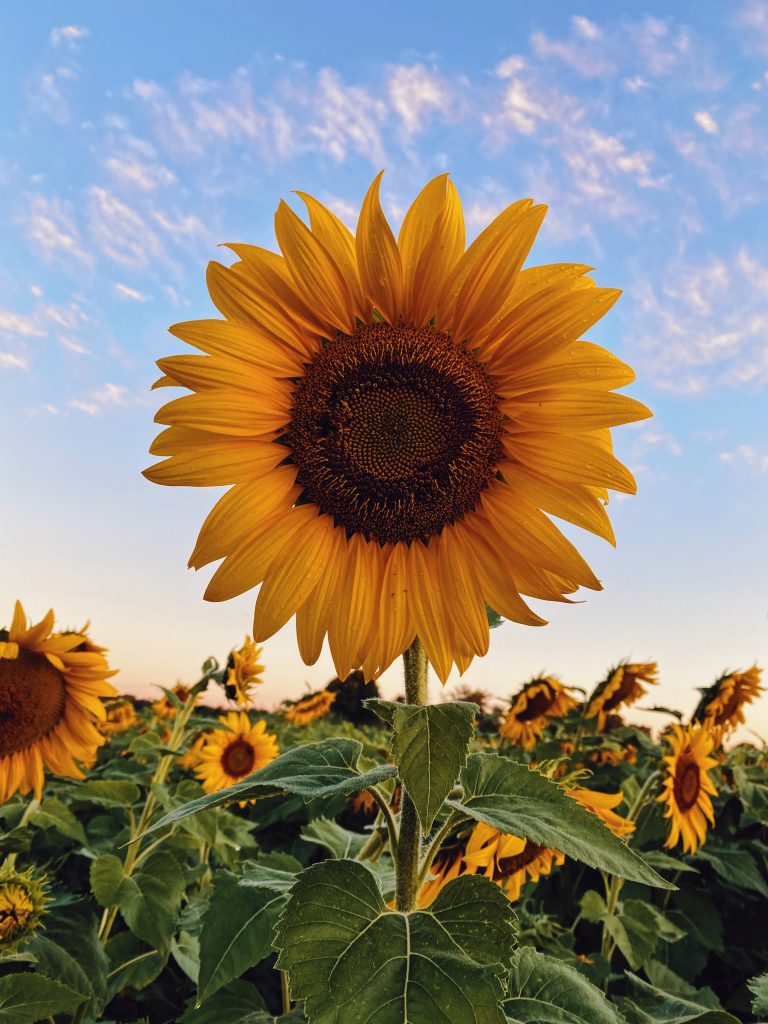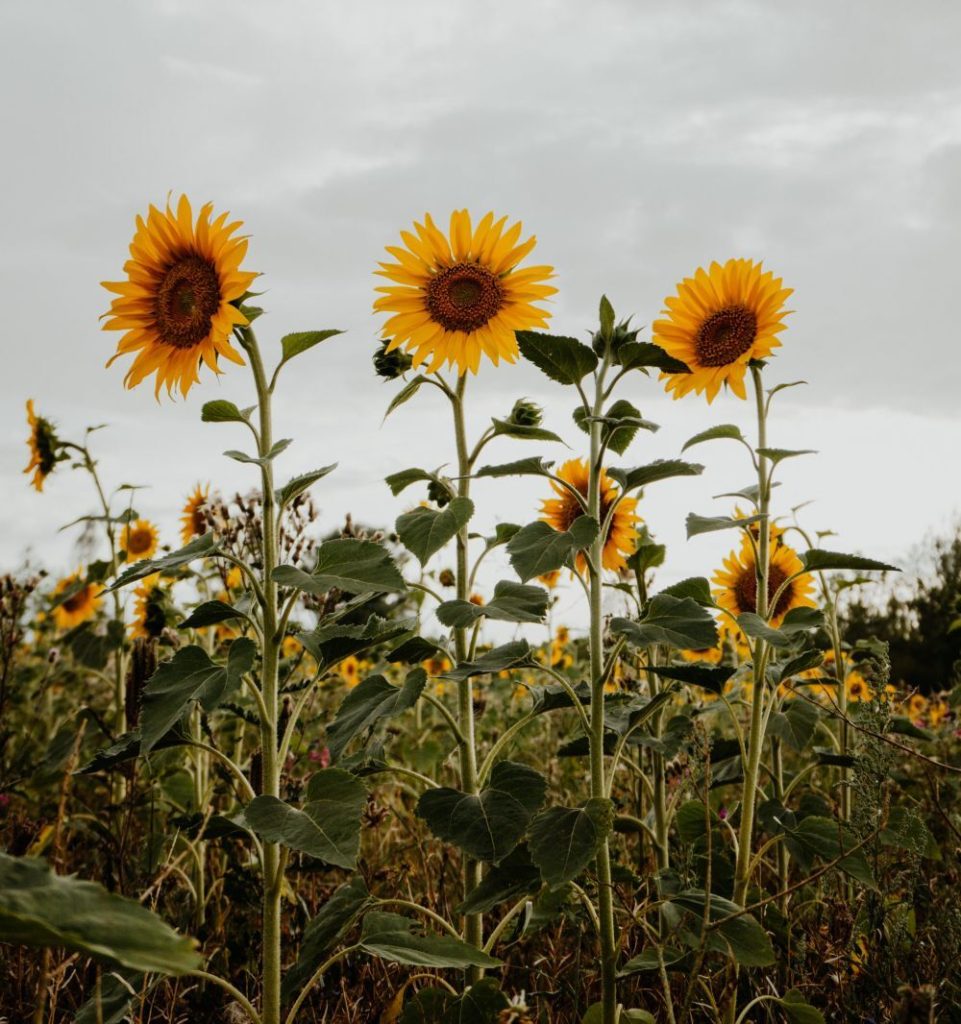The Sunflower; the Sun Worshipper, the Oil Well, and the Provider of Bio-Inspired Crop Protection
The Sunflower; the Sun Worshipper, the Oilwell, and the Provider of Bio-Inspired Crop Protection

When you see a sunflower, it is hard not to smile; its ability to follow the sun (a trait known as heliotropism), and the huge heights that it can grow all combine to produce an iconic annual flowering plant that is grown in small numbers for its beauty, and on an industrial scale as a provider of high-quality vegetable oil. So what is this plant and why would a biopesticide company such as AlphaBio Control be interested in it?
The History of Sunflowers
The sunflower (Helianthus annuus) is a native North American plant with a rich history dating back thousands of years, but which was first domesticated by indigenous peoples in North America, particularly in what is now the southwestern United States and Mexico, as early as 3000 BC.
Native Americans used sunflowers for their seeds, oil, and as a source of food and medicine. Sunflower seeds were ground into flour and used to make bread, while the oil extracted from the seeds was used for cooking and as a base for cosmetics. Sunflowers also held cultural and spiritual significance for many of them.
Introduced to Europe by Spanish explorers in the early 16th century, initially, sunflowers were grown in Europe as ornamental plants, but by the 18th century, sunflower cultivation had spread throughout Europe, particularly in Russia, for its oil-rich seeds, and by the 19th century, sunflower oil became the common cooking oil in Russia.
Reintroduced as a cash crop in the United States in the late 19th century, the country became one of the leading global producers of sunflower oil. Up to recently, the Ukraine has produced nearly a third of the global supply of sunflower oil, followed by Russia, Argentina and Turkey, and production has increased by 80% to 55 million tonnes over the last decade. That said, the recent war in the Ukraine has severely diminished the availability of this vegetable oil in many countries

As the Natural Starting Point for a Bioherbicide
Pelargonic or nonanoic acid is a simple fatty acid used as a feedstock for a number of processes, but can be used as a herbicide, where it destroys the cell wall of plants, which quickly dry out and die. Normally derived from the processing of petrochemicals, pelargonic acid has also been produced as a “waste” by-product of the conversion of vegetable oil, especially sunflower oil, into bioplastics.
AlphaBio has obtained regulatory approval of appropriately formulated versions of the bioherbicide for use in agriculture (MiSSiTO®) as well as products for control of weeds in amenity areas and on railway lines (Sunpower® and Harmonix Dispel®). And so the concept of using a plant extract to control plants in amongst other plants has been born.
Whether you view it as symbol of positivity and beauty, as an important foodstuff, a renewable chemical feedstock, or as the starting point for bio-inspired bioherbicides, the sunflower is a plant like no other. And we at Team AlphaBio are delighted to work with it.
Photo by Marina Reich on Unsplash
Photo by Aaron Burden on Unsplash
